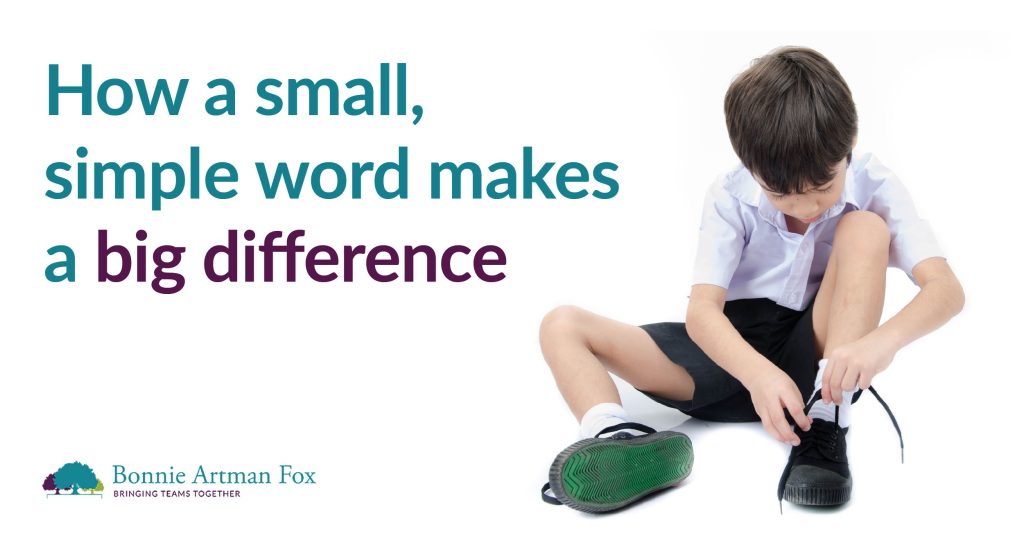Blog
How to Walk Your Talk to Be Both a Smart and Healthy Leader
Walk your talk is one of my core values. It is a privilege to work with executive leaders, helping them lead themselves effectively so they can, in turn, lead their teams and organizations with excellence. I hold this responsibility in high regard. That’s why having an inner circle of like-minded colleagues who also value “Walking…
Read More5 tips to use curiosity to improve interpersonal skills
We have two options when faced with a problem or personnel issue. We can either resolve it and figure out why it’s happening in the first place or ignore it, hoping it will go away on it’s own. The later usually leads to bigger problems down the road. The better way is to use curiosity…
Read MoreThe Impact of Abrasive Behavior on Employee Well-being
Addressing the impact of abrasive behavior of top-performing talent often takes a backseat. As an executive leader, the complexity of balancing outstanding results with a harmonious work environment can leave you wondering “Do I prioritize operational excellence over interpersonal harmony?” 4 Facts About Abrasive Behavior Leaders Should Know 1. Decreased Ability to Be Productive “Why…
Read MoreInnovation, Diversity, and Resilience Strengthen Workplace Culture
As we celebrate the 4th of July in the United States, it’s a time to reflect on the values that make our country strong: independence, freedom, and unity. While we honor these principles, it’s worth considering how these values can be reflected in our work environment. A thriving workplace culture isn’t just about hitting goals…
Read MoreManaging Abrasive Behavior: A Blueprint for Success
Leaders often face the challenge of managing abrasive leadership, where high-performing executives with abrasive behavior create workplace tension. Finding the right balance between productivity and a harmonious environment is crucial for effective leadership, leaving you to wonder… “Do I prioritize operational excellence over interpersonal harmony?” This week, we’re focusing on a critical aspect of leadership:…
Read MoreDoes the look on your face create psychological safety with your employees?
Most leaders don’t learn how to create psychological safety until it’s too late. The skillset necessary to strategize your business plan, create systems, and monitor metrics is not the same skillset necessary to retain employees to run your day-to-day operations. That’s why having interpersonal skills that create psychological safety with your employees is so important.…
Read MoreWhy self-control is the engine of your success
Do you have a goal you’ve been striving for but haven’t yet reached? Whether it’s finishing a project, addressing team dysfunction, or having a tough conversation, self-control is the engine of your success. It’s the driving force that keeps you focused and persistent, and tools like the If-Then Plan can help you harness that power…
Read MoreHow a small, simple word makes a big difference in boosting your resilience in leadership
When faced with challenges, especially in leadership, boosting your resilience is crucial. I was reminded of this recently when my grandson started learning to tie his shoes. A task that seems simple to many of us is a monumental challenge for a child. The frustration of not getting it right is real, but it’s also…
Read MoreHow to give honest feedback to an abrasive superior
By all accounts, Jack is a successful leader. He’s an industry trailblazer that others look to for his expertise. Financially, he is doing well and his business is thriving. On the outside, Jack has many markers of success. What Jack doesn’t realize is how abrasive his behavior is to others. What is obvious to others…
Read MoreOvercome Negative Reactions at Work with the 4 Rs of conflict resolution
4 Rs of conflict resolution. Have you ever had an extreme reaction to a seemingly small problem at work? “Where did that come from? Why did I react so strongly?”. It could be your Workplace Family Factor® getting triggered. Your Workplace Family Factor® is the connection between: We all have childhood experiences that influence who…
Read More





